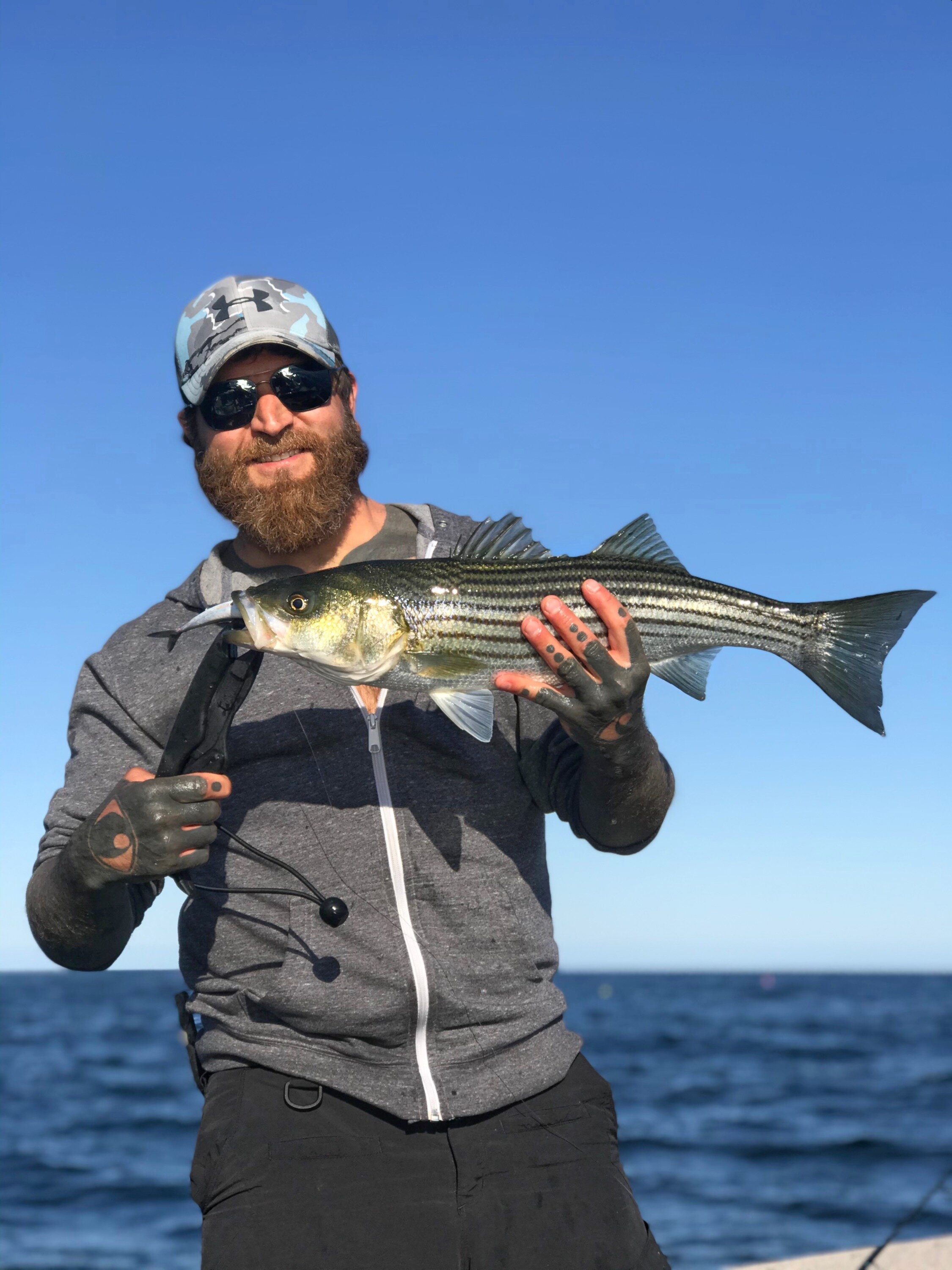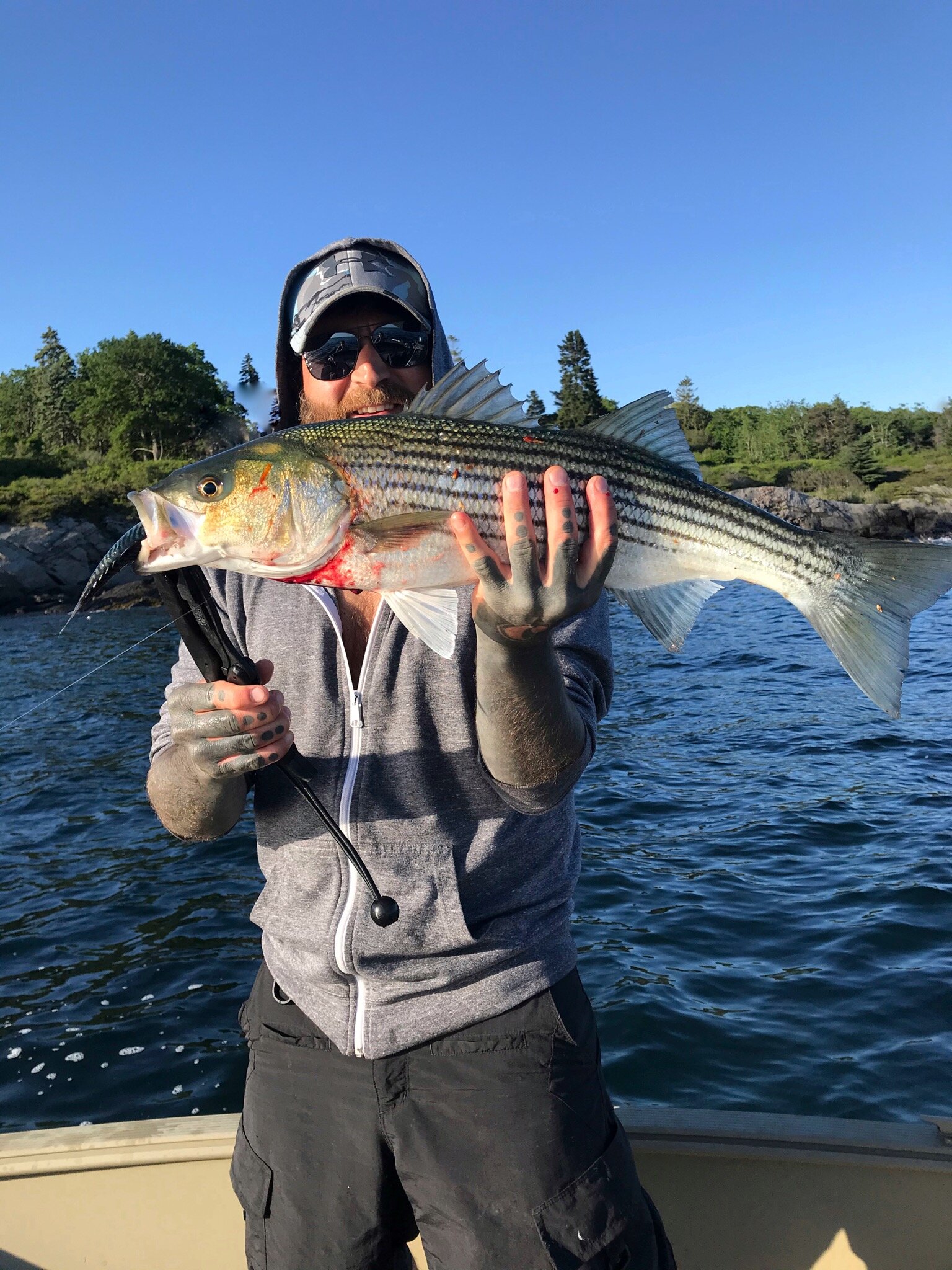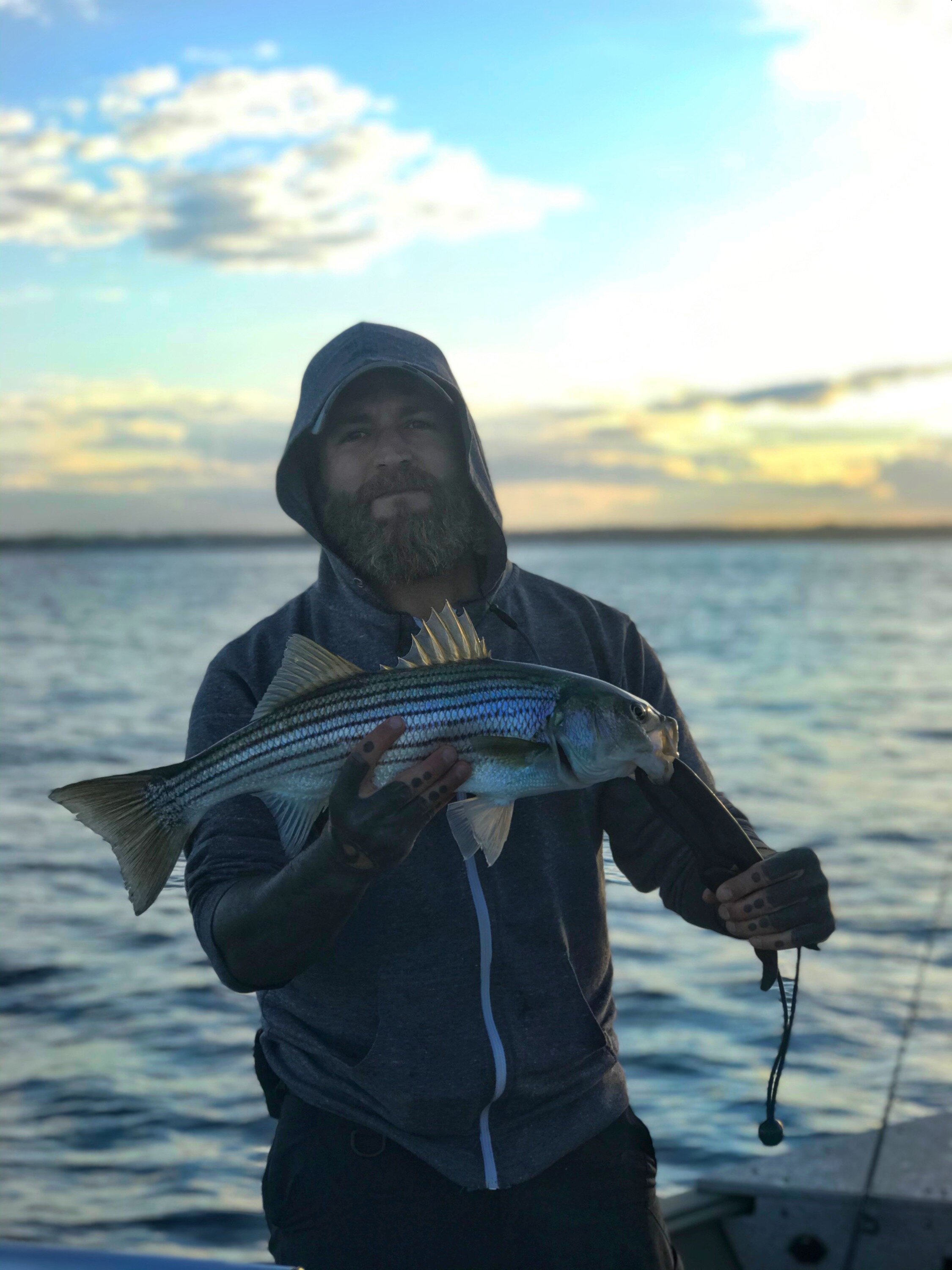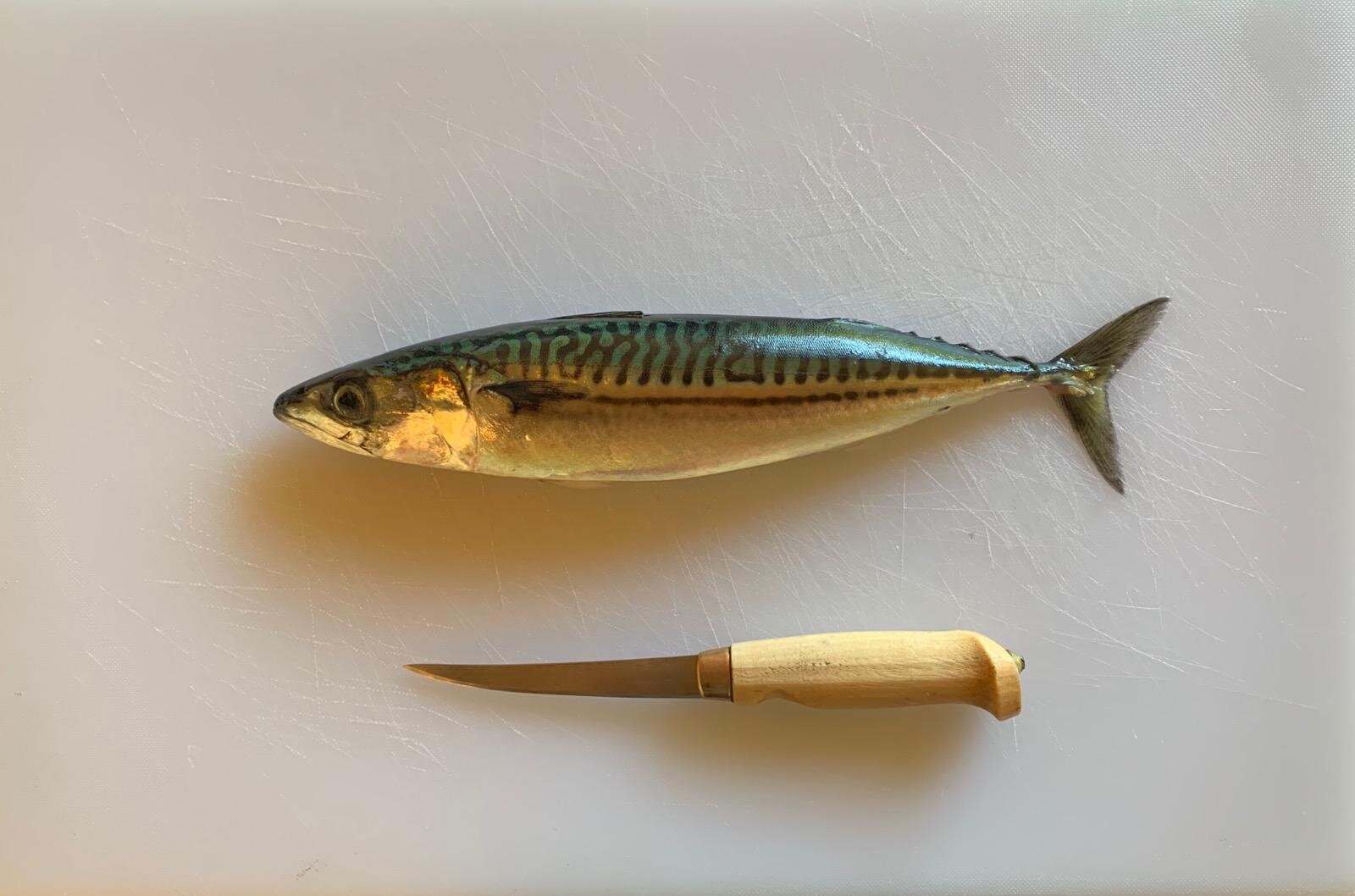Striped Bass and the Realities of Catch and Release
Last week Avani and I took the boat down to the coast for the first time this season. The larger striped bass (Morone saxatilis) have, once again, been making their way up the coast as part of their annual northward migration. Though most of these fish winter in and around the Chesapeake Bay area, each summer they migrate as far north as Canada’s Saint Lawrence River, arriving in Maine in late May and early June. First to arrive are the “schoolies”, juvenile fish that fall beneath the legal size limit. While many catch and release anglers enjoy chasing these smaller fish for sport, I’m more interested in catching a larger specimen for the table. So, I tend to spend late May and early June fishing the brooks here in the foothills for trout, waiting until the biting insects are unbearable to head down to the sea. Once the larger fish start to arrive I trailer the boat to the coast to escape the mosquitos and focus our efforts on what many East Coasters call “rockfish”.
This is just my fourth year of striped bass fishing, but I’ve been lucky to have some great teachers and have learned a pretty reliable method for bringing striped bass to the boat. While there’s a lot of ways to fish for this species, including a very well developed artificial lure and fly casting fishery, I prefer live-ling mackerel and menhaden, casting them towards the rocky coastline where striped bass are actively feeding in the surf.
Now, I should also mention that I’m quite blessed to be married to a woman who can drive my boat better than I can. Her instincts for wave dynamics, currents, and tides comes from a life spent in and on the water, and she’s become — in just a couple of years — quite adept at positioning me and the boat in the perfect place for each cast. It’s no easy feat, since we’re in and around the intertidal rocks where the surf is constantly threatening to dash your boat upon the rugged coastline. Fishing with her is like having a personal, hired guide for the day.
This year's regulations require a striped bass to be at least 28” long but less than 35”, in other words, they have to fall into what’s called a “slot limit”. I like this kind of management, because it preserves fish that have yet to breed and also spares larger specimens that are statistically much more significant breeders. The challenge however, especially for folks like me who aren’t there for the sport of angling, is that I catch, handle, and release a lot of fish in an effort to find one I can keep.
While a lot of people think of “catch and release” fishing as a more ethical and gentle way to approach the water, I struggle with it — a lot. Fish mortality is much higher than most anglers want to admit, and hooking fish for fun — no offense fly anglers — doesn’t really excite me. I’m there to catch fish for food, and it's obvious to me that even the gentlest angling injures every fish that gets caught. So, while catch and release angling was instituted to solve some very real problems, it doesn’t solve them as completely as one would hope, and presents some unique problems of its own.
We started off our day jigging for mackerel, over chum we’d made last year from mackerel and menhaden. We make it by pushing whole fish through the meat grinder, freezing the chum in bags, and then dropping the frozen block over the side of the boat in a chum bag. After a few minutes I start jigging a sabiki-rig, which is a multi-lure rig designed for catching several bait fish at a time. Once the mackerel school comes into the chum it's not uncommon to catch 4-5 fish on a single drop. We caught a couple dozen mackerel, and while the smaller fish went into the live well for bait, we bled and iced half a dozen larger ones to bring home and eat. And I’m glad we did, because even though we caught several beautiful striped bass, all over 2’ in length, none of them fit into this year's slot limit. They all had to be put back. Despite the full kit of tools I bring along to ensure a quick and low trauma release, I suspect a couple of these fish won’t survive the injuries they sustained from us catching them. When you see blood coming from the gills it’s often a death sentence for the fish. Still, this doesn’t allow you to keep the fish, so even with what are likely mortal wounds, it must be released.
Now, before any anglers start commenting, I want to be clear. I’m using circle hooks — which are legally required here — because of their tendency to hook the fish in the corner of the mouth more reliably than a standard J hook. I have fish grips for gently holding the fish by the mouth and controlling it so it doesn’t get injured thrashing around on deck. I have short and long pliers for getting hooks out and even bolt cutters for removing deep set hooks. Despite my saltwater surgical kit, angling causes trauma to fish. This is the poignancy of length restrictions. While they’re intended to protect the resource, sometimes, as was the case for us yesterday, they cause more fish to die than would have if we’d just been able to keep the first one we caught. Instead, we kept fishing, ultimately landing more than half a dozen fish and not being able to keep any of them. It’s like a game of chance played through an obfuscating veil of light refracting water. We just keep rolling the dice. Every fish we caught swam away on their own power, but how many survived their meeting with us, I’ll never know.
In the end, I cooked mackerel for dinner. Filleted, deboned, and cooked fresh, they’re delicious. But, we’re still chasing the keeper-size striped bass, looking for a meal. It’s forcing me to be a gentler, more strategic angler, both in how I hook up with the fish and what happens after I bring them to the boat. And, it’s a reminder to me that I’m better off waiting a few extra weeks for the larger fish to migrate their way to the Maine coast, which should reduce the number of smaller fish I connect with.
In the end, I’m grateful we have laws that protect this incredible resource. But sometimes I wish there was room for a little more nuance.








